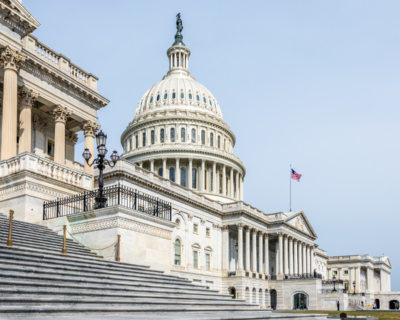Commentary: Obama’s Renewed Commitment to Card Check a Cause for Alarm
The President has been busy catering to his union allies, even to the point of soliciting them for funding to keep Democrats in office in upcoming elections. As part of his appeal to unions for political and material support, the President promised reinvigorated efforts to muscle into law the “Employee Free Choice Act,” commonly known as the Card Check bill. This promise comes even after the bill was left for dead by a Democratic-majority Congress. The fact that the President is attempting to revive this piece of law demonstrates how transparent his labor agenda is.
The proper name of the bill, the “Employee Free Choice Act,” is comically inappropriate. As you may remember, the EFCA strips workers of their right to a secret-ballot election to decide whether or not to form or join a union, and instead forces them to participate in a public sign-up process in front of their peers, where in long-standing union tradition, they may be subject to intimidation and undue influence. Furthermore, it contains an “arbitration clause” which deprives workers of determining their own working terms and conditions to a government arbitrator, the consequences of which are delineated here.
In an op-ed in response to Obama’s statements, Rep. John Kline lambasted the EFCA. “Secret ballots are a fundamental principle of American democracy. They remove intimidation and coercion from the voting booth and allow men and women to vote their conscience freely. Despite the bill’s lofty name, removing the secret ballot from union elections will give workers anything but freedom.”
If a majority of the workers sign the cards, a union is immediately organized. This piece of legislation was designed by unions and peddled to their supporters in Congress so that they can arrogate new workers to compensate for their declining influence and members. In return, unions have promised to pour in more than a hundred million dollars in capital to support incumbent Democrats.
If implemented, the long-term implications of the Employee “Free” Choice Act will closely adhere to the general implications of unions: escalating costs to run businesses, inefficient expenditures of time and money, and fewer jobs. While this has been recognized by enough members of Congress for the EFCA to have been initially discarded, President Obama seems determined to resurrect it. With his approval ratings in the red due to his unpopular policies and comprehensive “reforms,” he is turning to the AFL-CIO and SEIU to help fortify his presence in the White House. President Obama may be willing to throw businesses and taxpayers under the bus to promote his labor agenda. It is essential that our representatives reject this latest overture to unions and quell any attempt to revive it.




